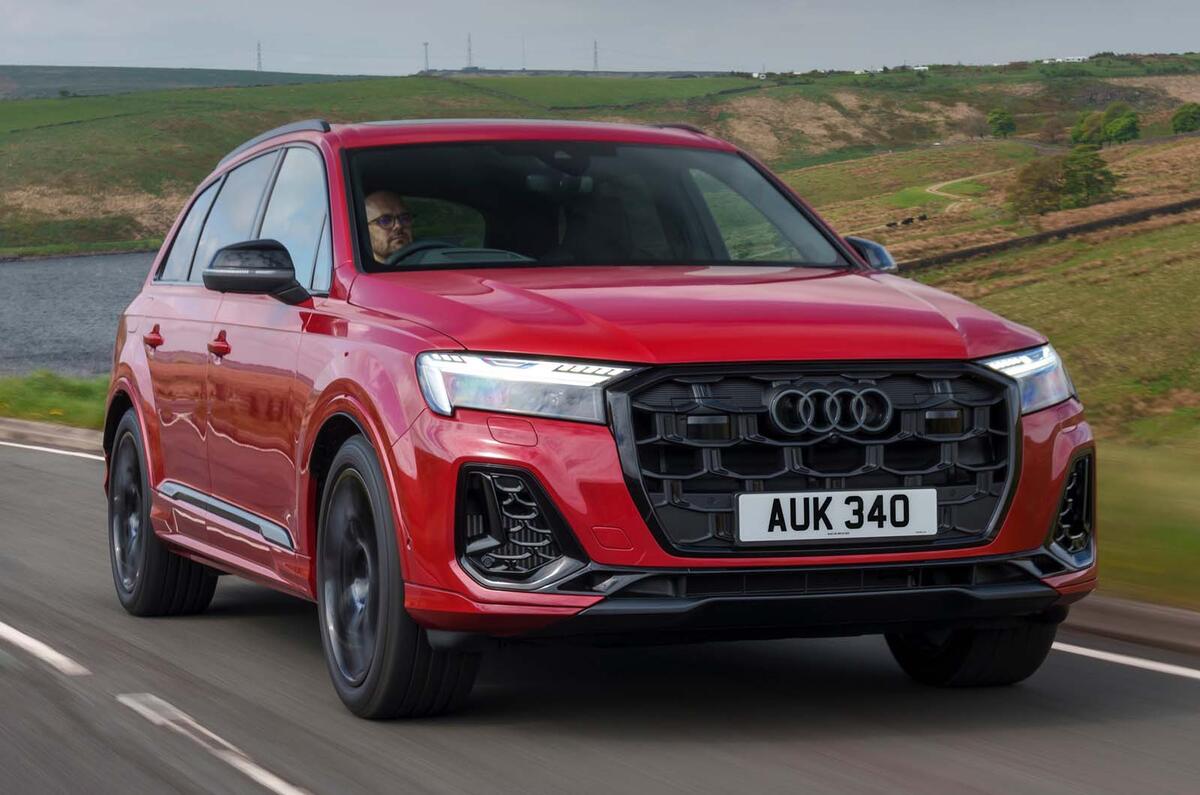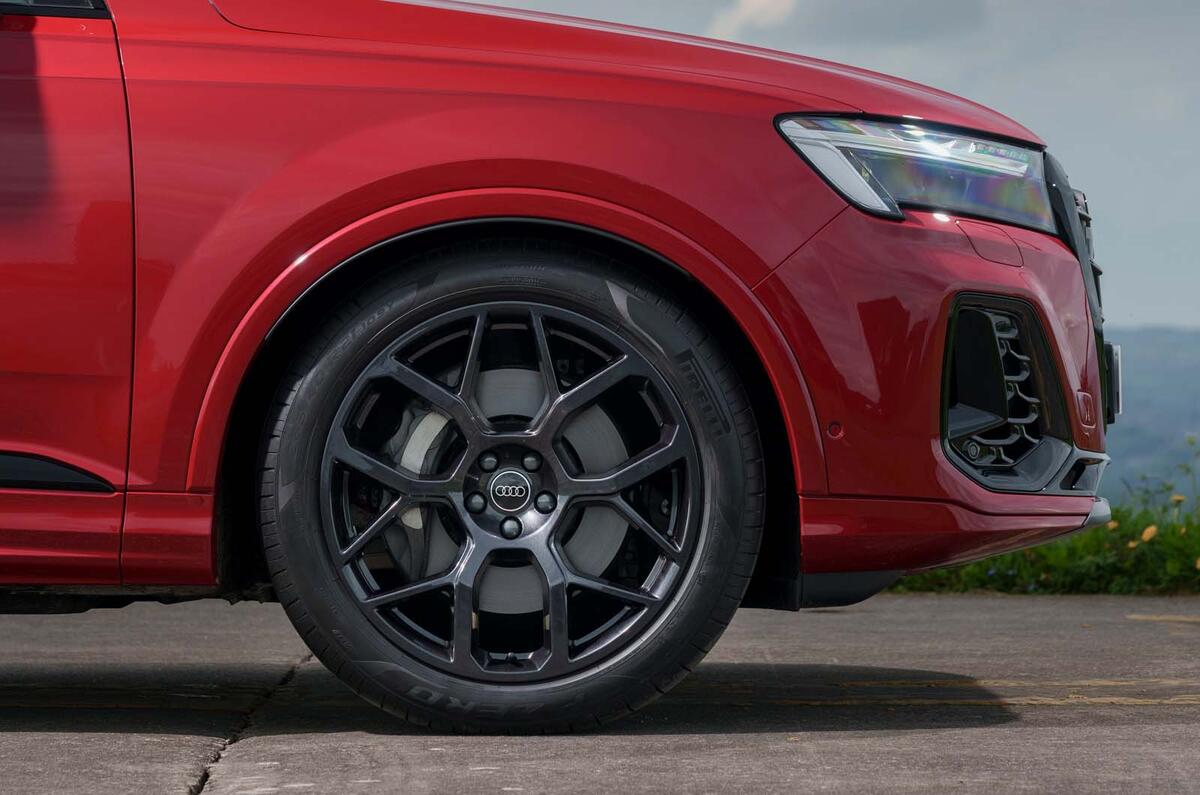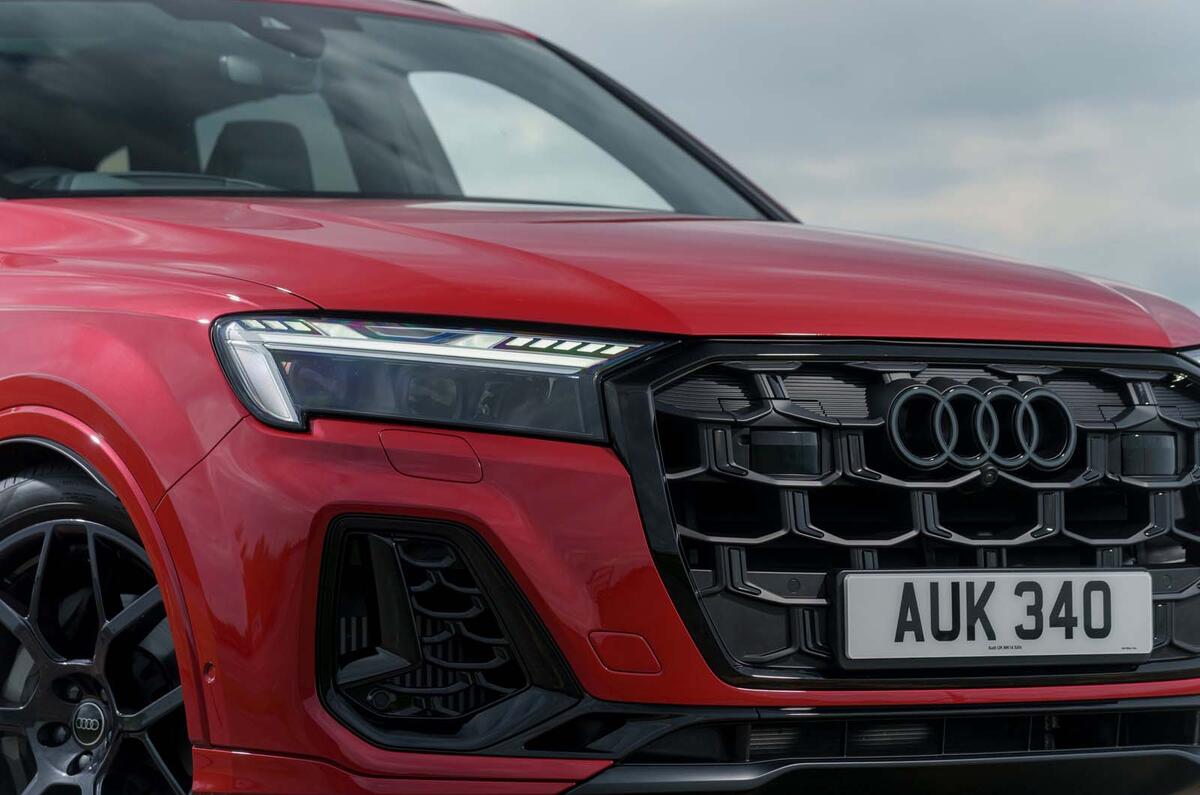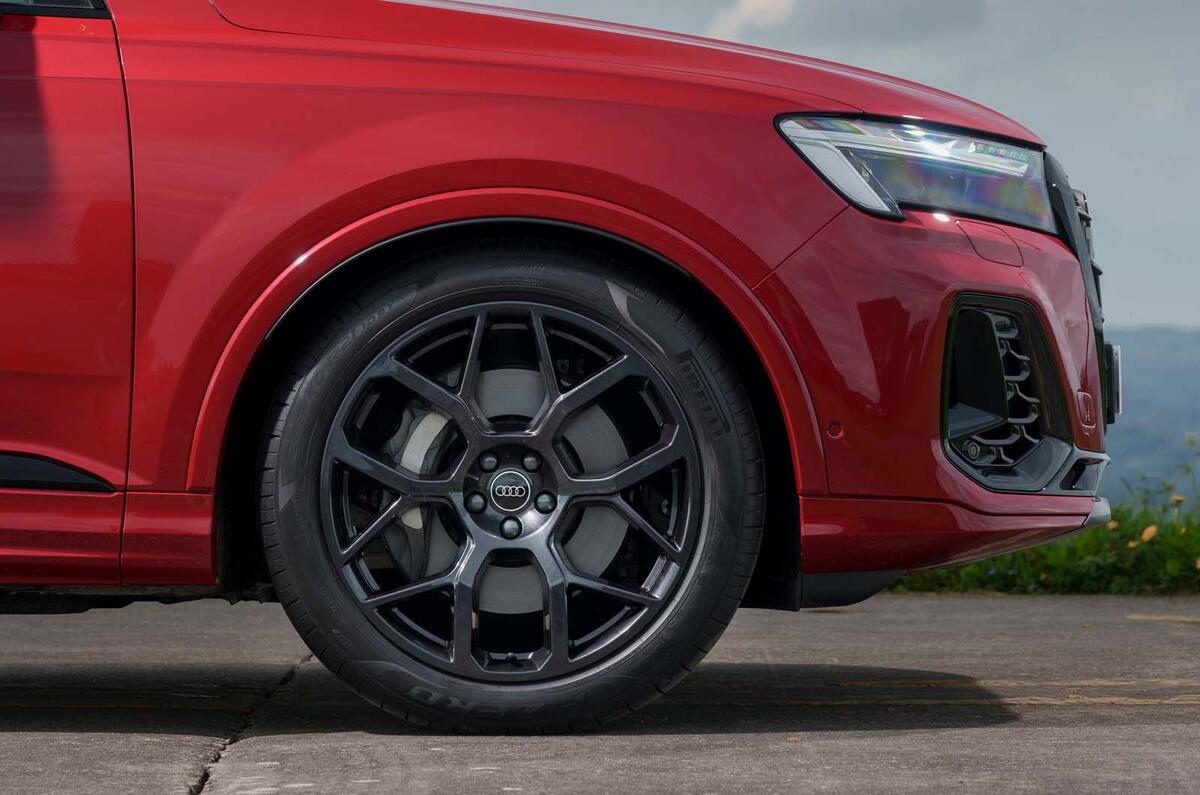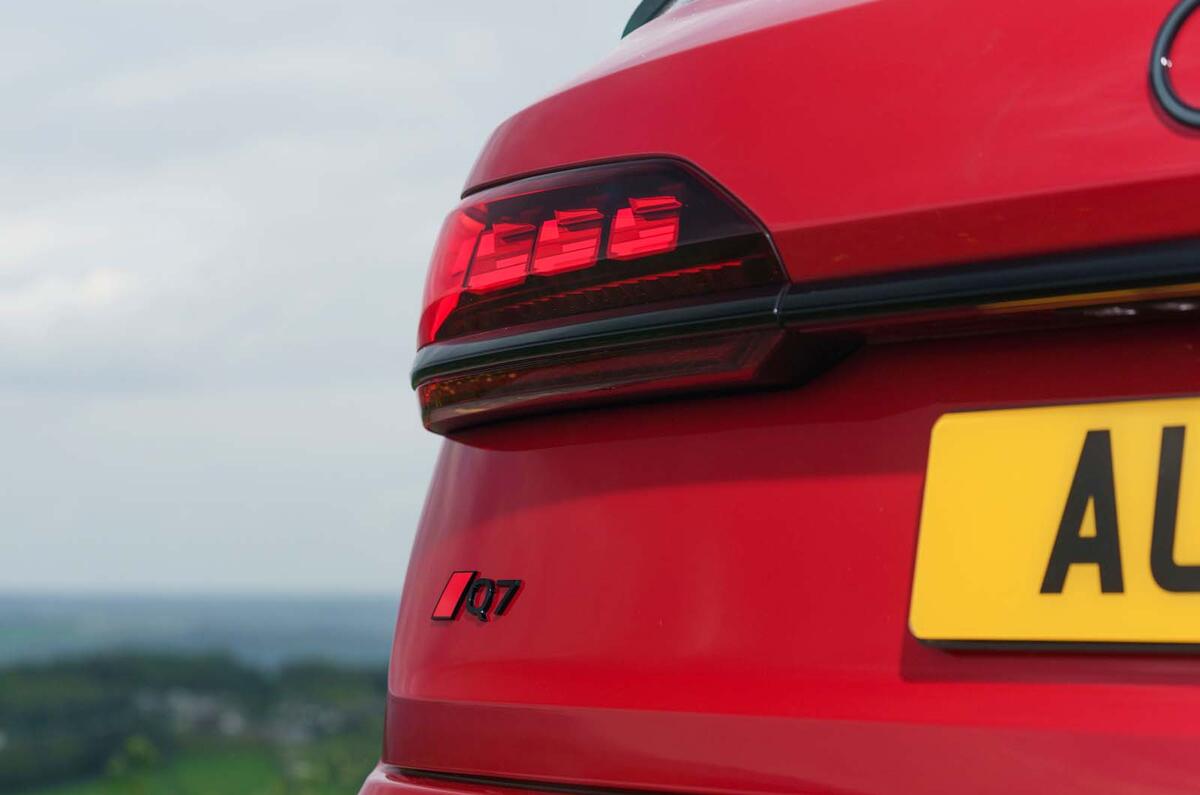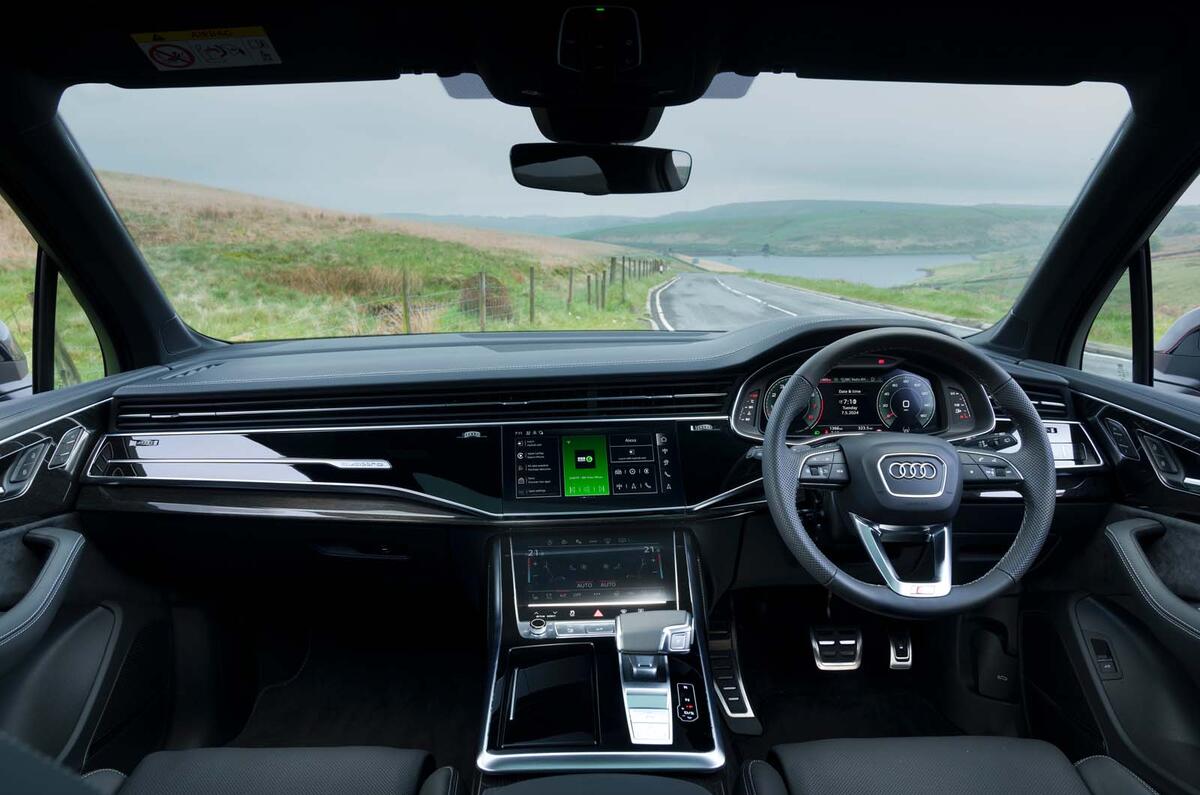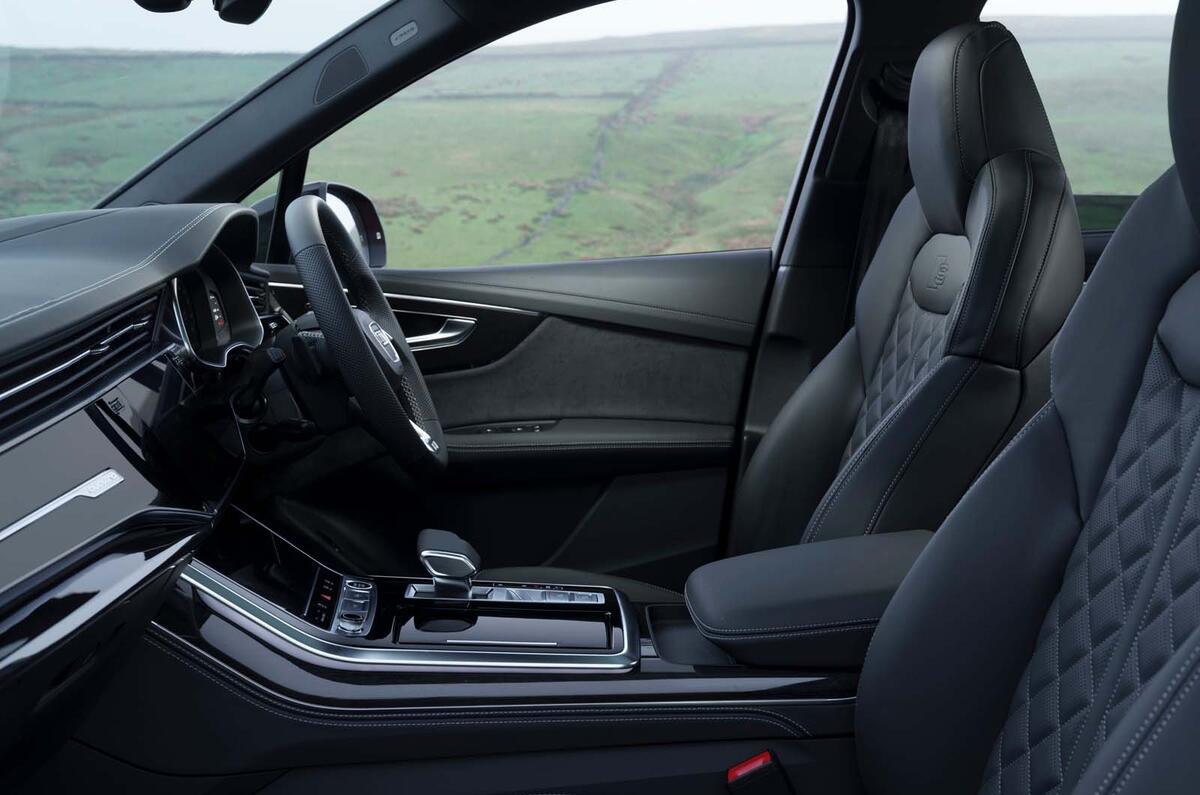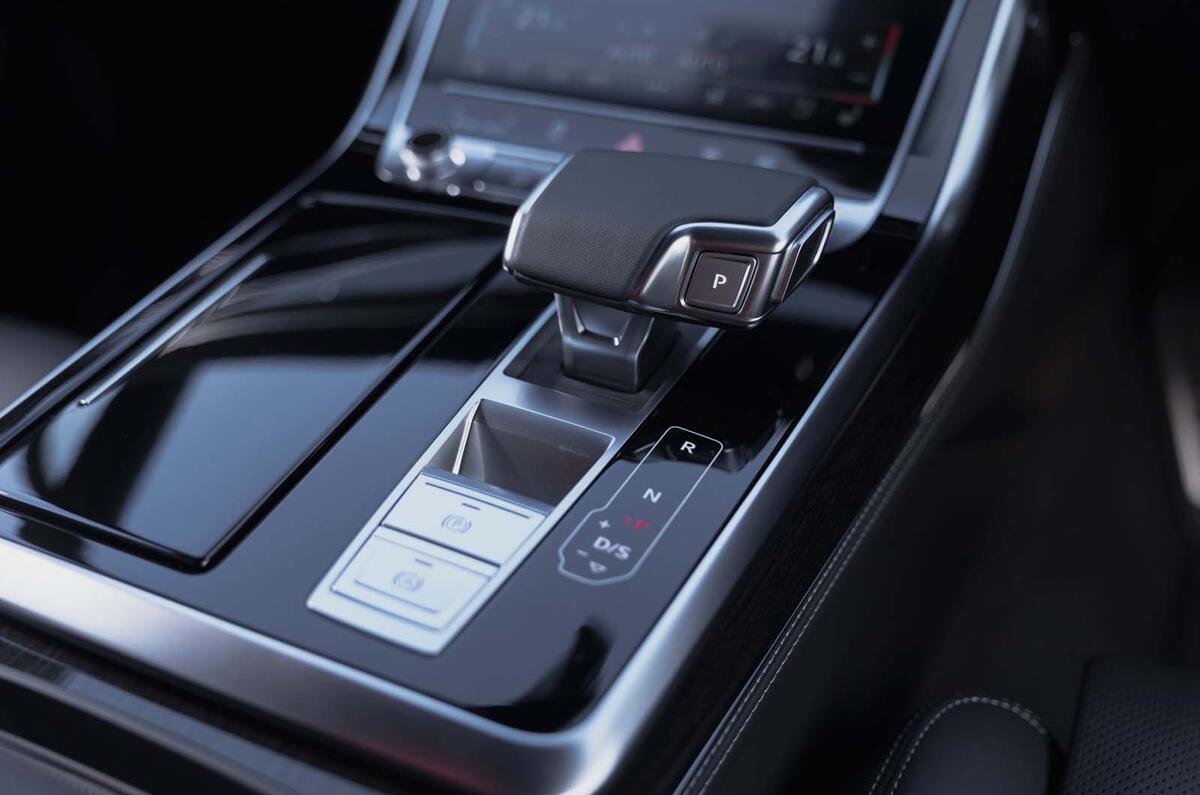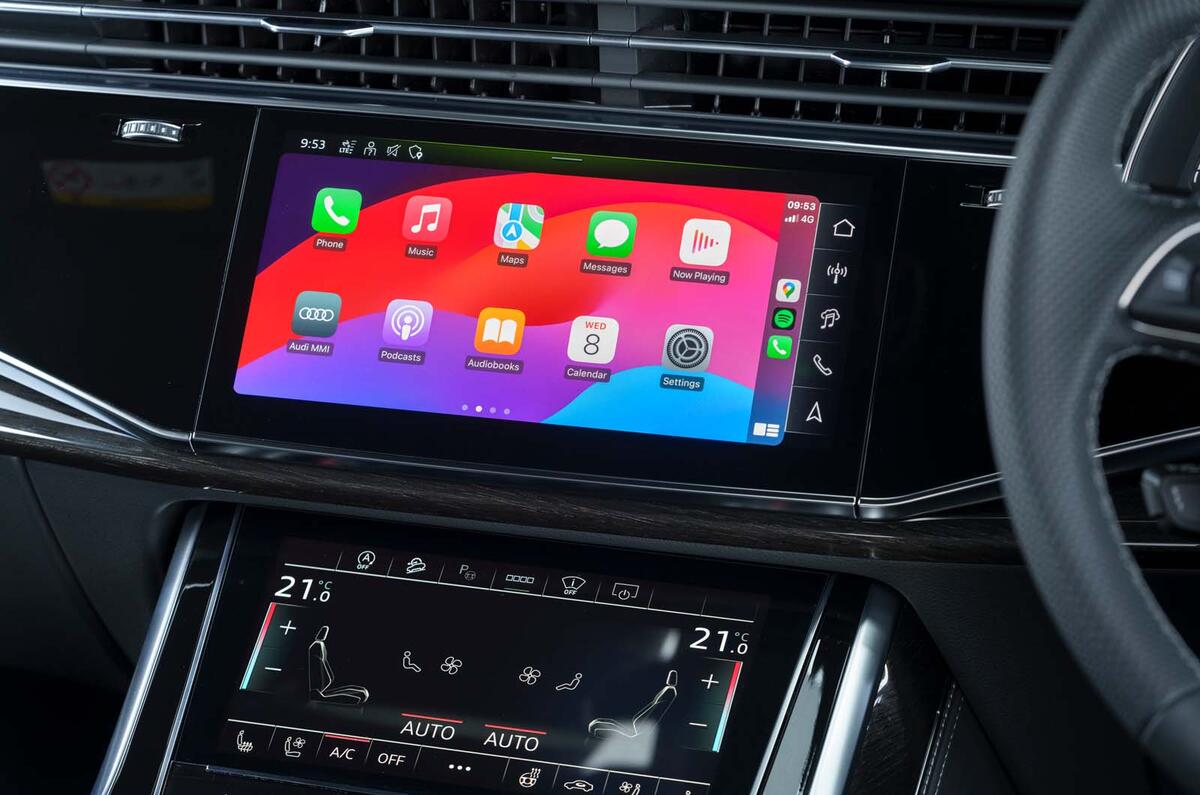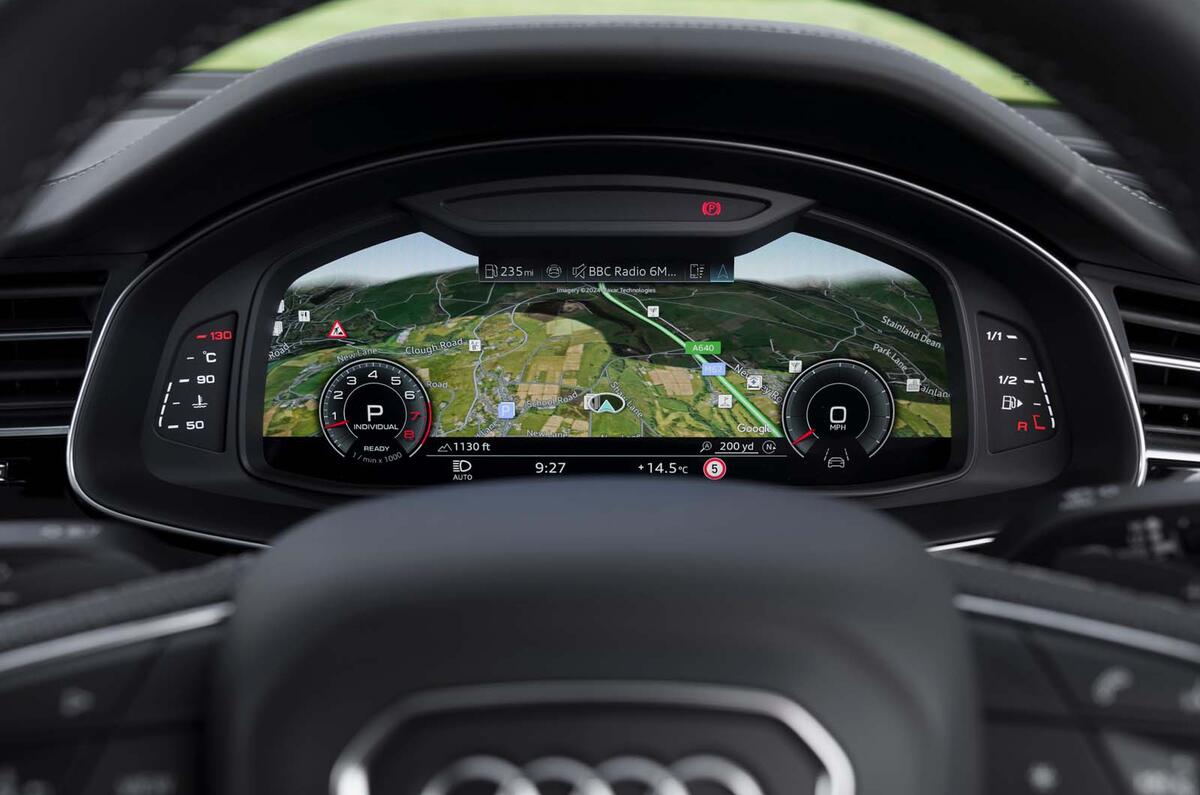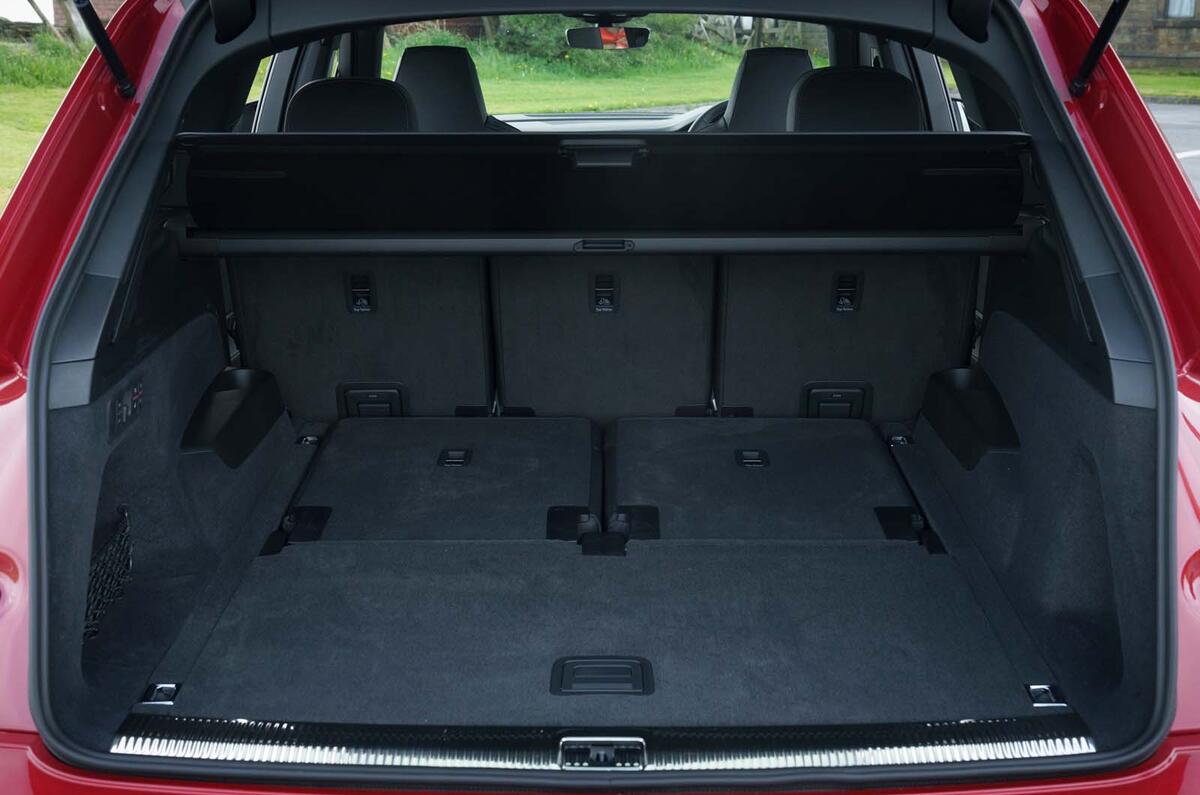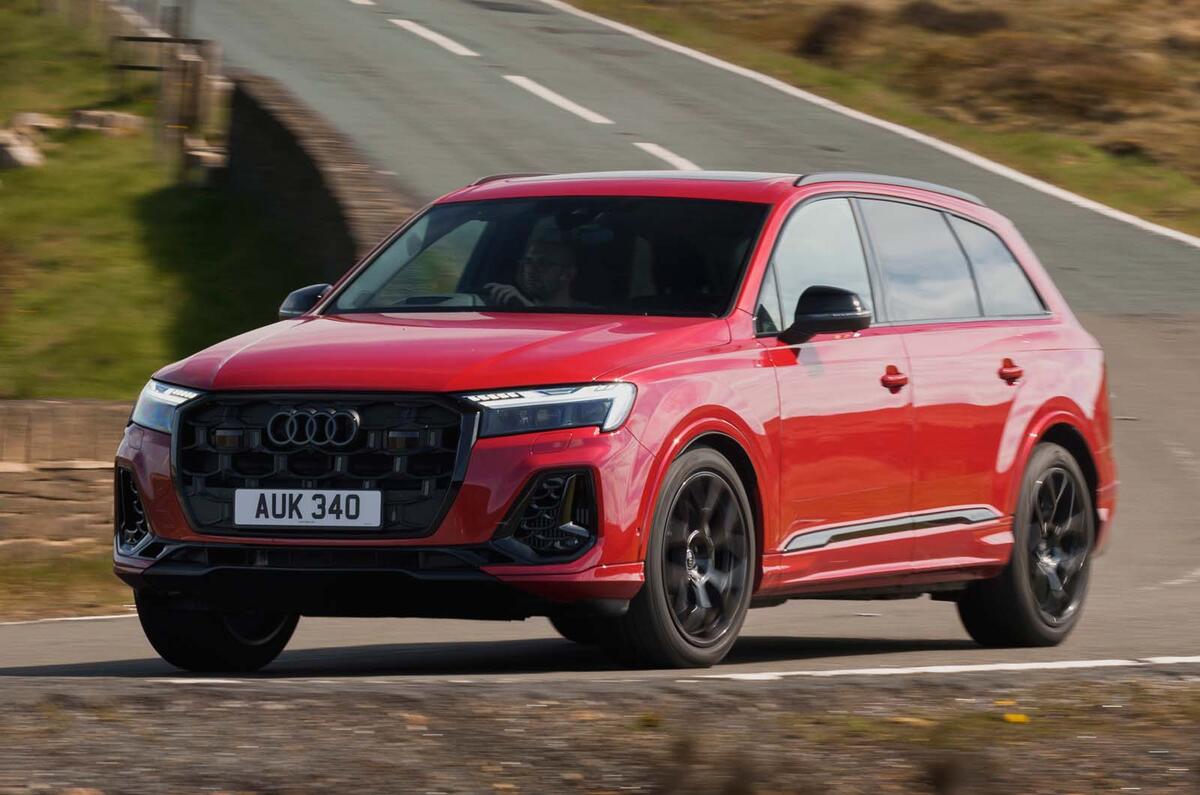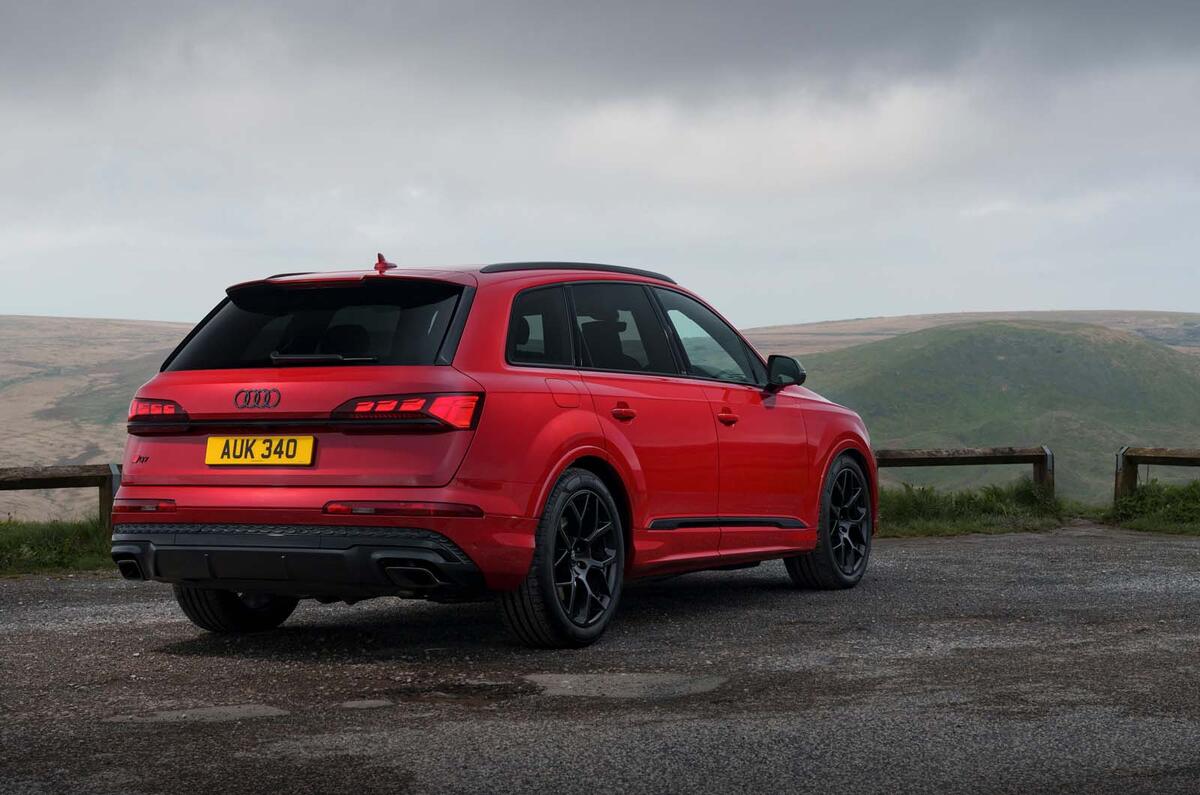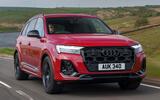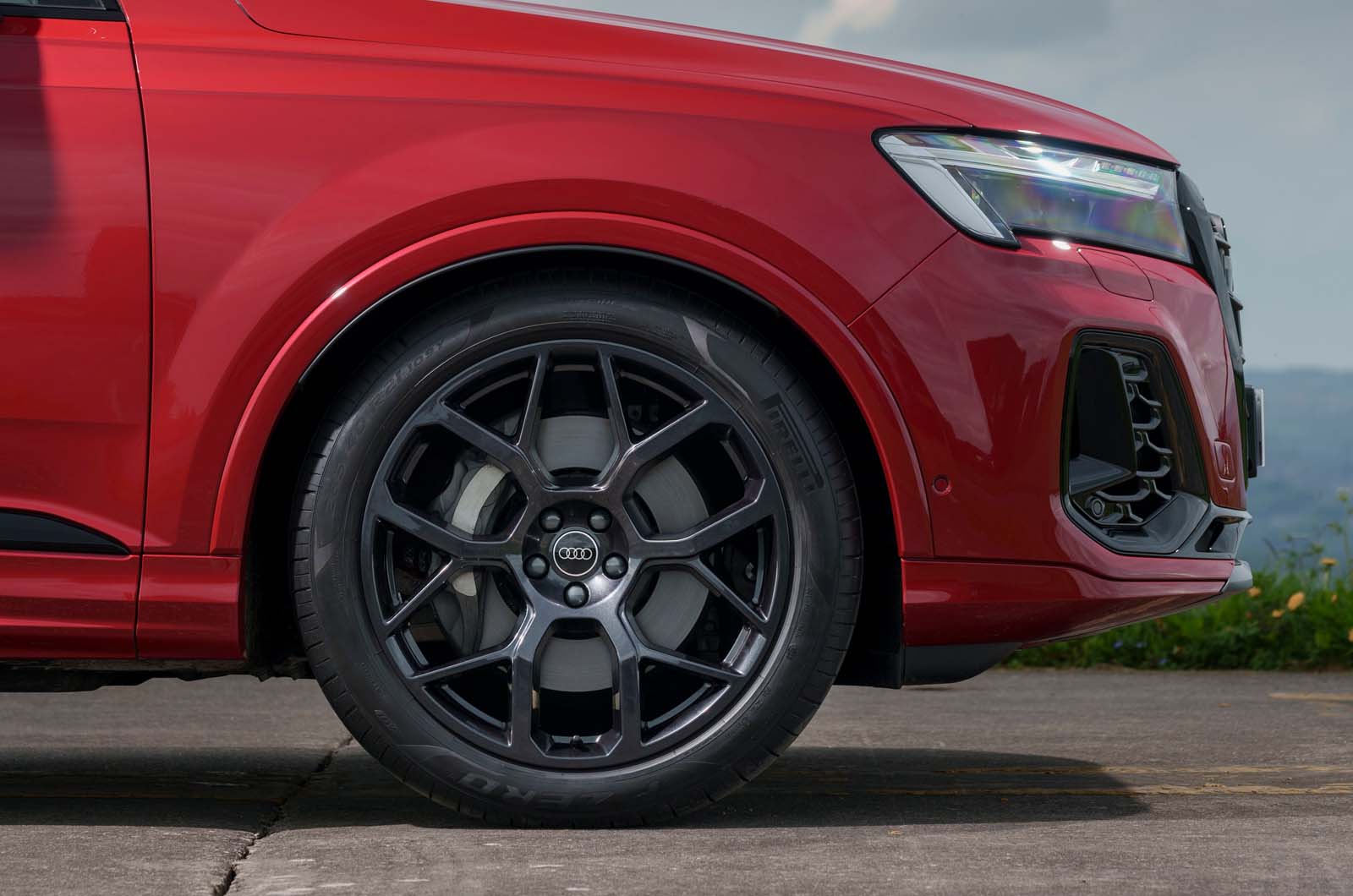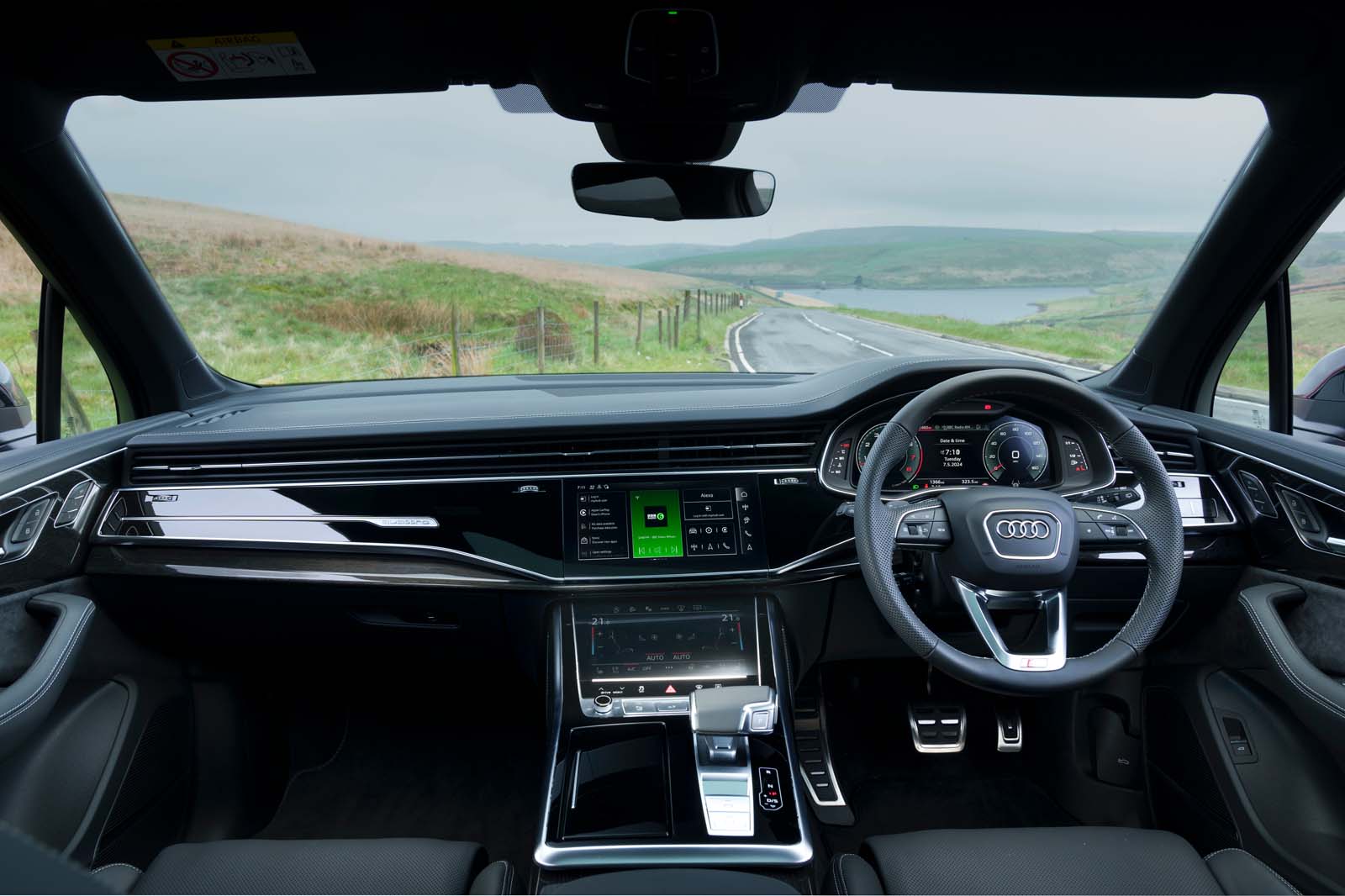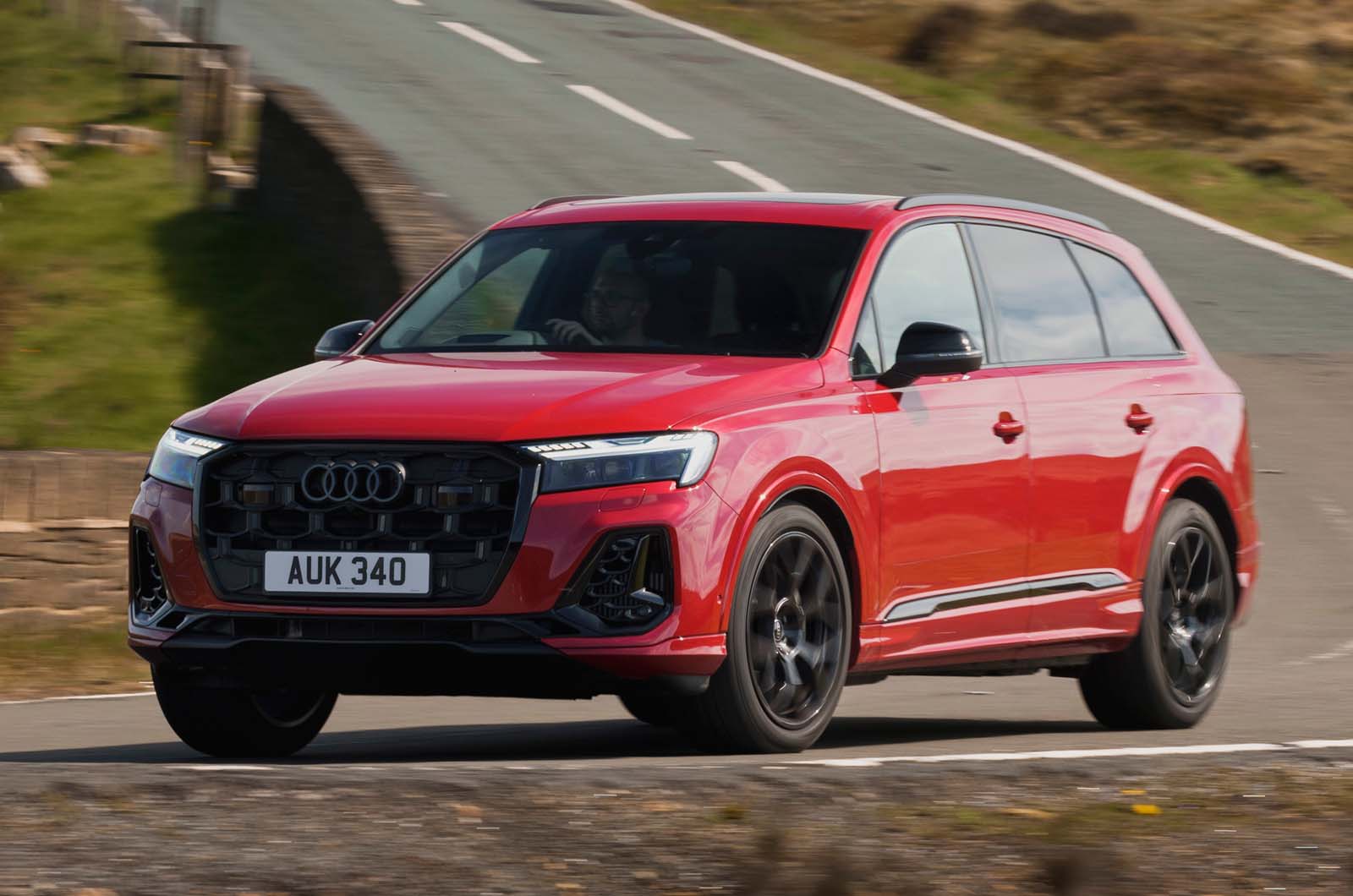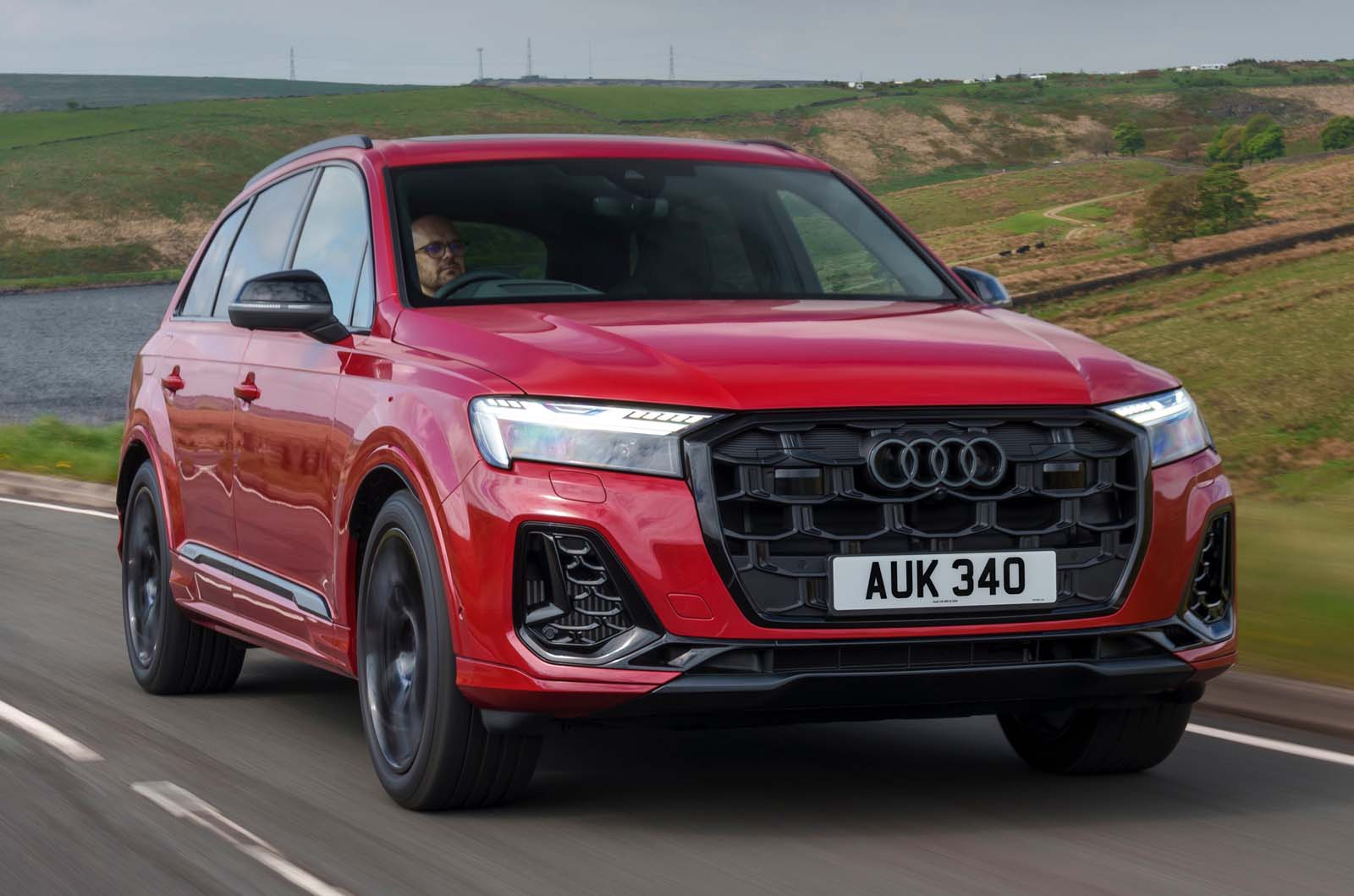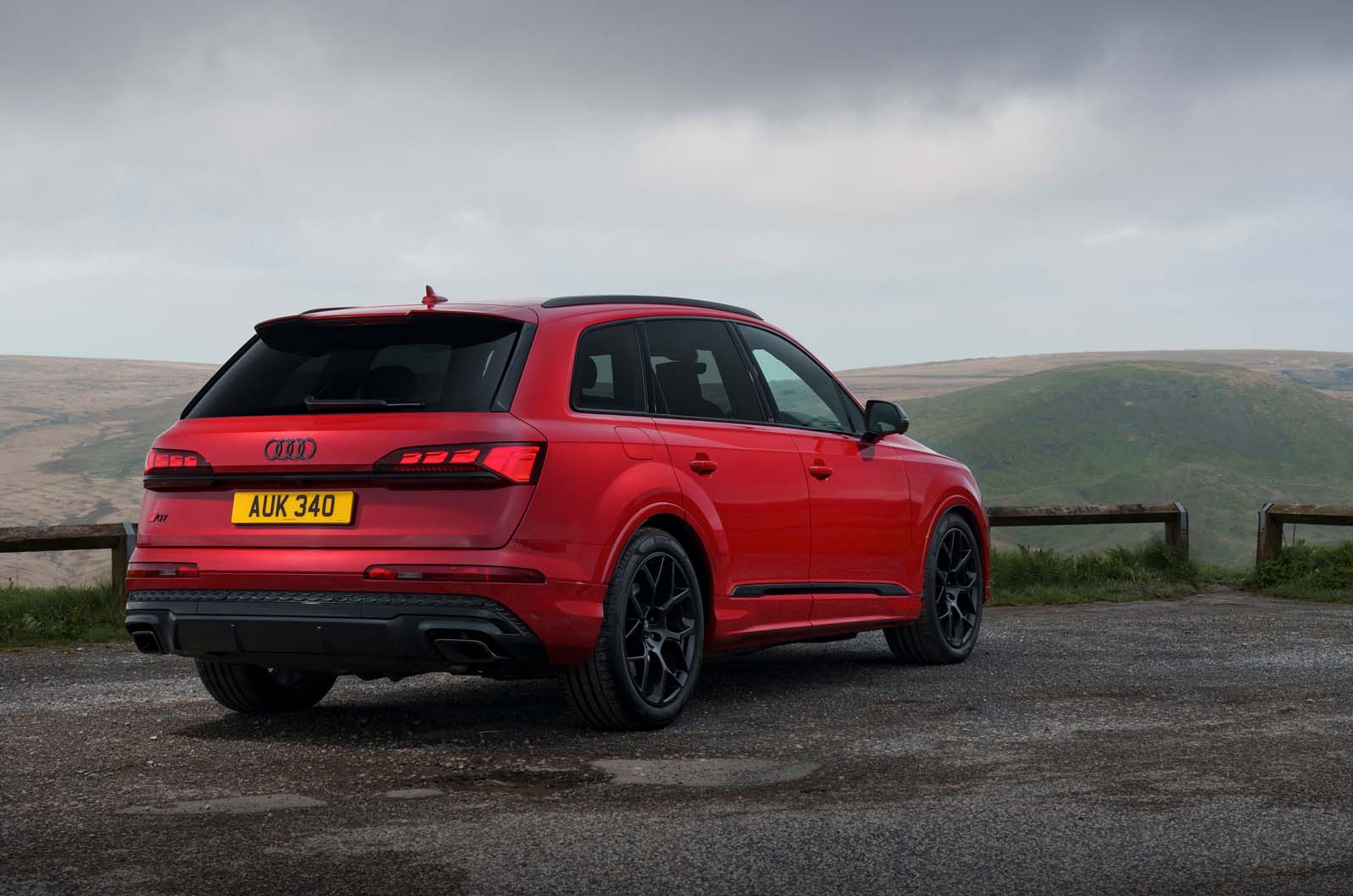Little else showcases the Q7’s quality and refinement more than its lavishly appointed cabin.
Rivals like the Range Rover Sport and BMW X5 have long been at the forefront when it comes to modern luxury interiors but the Audi is more than up to the challenge.
Its preference for brushed metal (or the appearance of it), sweeping lines, supreme fit and finish, plush leathers and suede inserts in the doors give it a classy feel that isn’t garish or over-the-top. Even the cheaper plastics lower down by your feet feel are of high quality.
There isn’t a surface or item of switchgear that doesn’t commend itself to the touch, and the two-tier screens (one for the infotainment and the other for the climate controls) are neatly integrated into the dash.
That being said, the screens themselves aren’t the best in terms of responsiveness and configuration. Some of the icons are a little too small, which means you’re forced to look away from the road to make sure you hit it with your finger accurately.
It's the same story with the lower display for the climate controls: the buttons are perhaps less fiddly, but a lack of physical switches and knobs makes it a little harder to operate while driving.
Still, both screens benefit from a number of larger shortcut buttons and it's easy to pair your phone via Apple Carplay or Android Auto, which you’ll likely use most of the time.
Audi’s super-sharp Virtual Cockpit display is one of the best out there and its customisation and flexibility is second to none. You can view all kinds of economy data or you can turn the entire display into one giant sat-nav screen. The head-up display in our test car was good, too.
Beyond the tech and materials, the Q7 is supremely spacious and practical. There is more than enough room for tall adults in the second row which has three individual seats that can all slide fore and aft.
If you opt for the plug-in like our test car, you lose the third row of seats and the boot capacity drops from 780-litres to 563-litres due to the battery being stored in the floor.
The Q7 is still a model of practicality, but choose your engine wisely if you’re in need of a third row of seats and more boot space.



